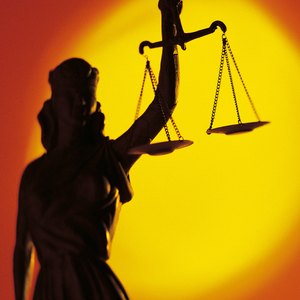
Ending up on the losing side of a lawsuit or collection effort is no fun. It is even worse when you do not have the resources to pay the amount for which you are responsible. There are as many ways to handle this situation as there are types of judgments.
Nature of a Judgment
Once a lawsuit is resolved, a judgment is issued. This is the final part of a court case. In civil cases, the judgment is a penalty or fee of some type. Most are money judgments. Money judgments must be specific and in writing. Other types involve real estate or other personal property.
Judgment on record
Once a judgment has been issued, the next step is to docket it. During this process, the judge signs an order and hands it over to the Clerk of Court who files it. This has the effect of making the judgment and order of payment for monetary debt or a lien of record against any real property owned by the debtor. At this point, the losing party is responsible for paying, or satisfying, the judgment.
Creditor's Rights
The creditor has the right to enforce the judgment against the debtor. In most states, this is called a “writ of execution.” This gives an officer of the court, typically a sheriff, is given the authority to demand payment or seize and sell property to produce enough proceeds to satisfy the judgment. The umbrella of demanding payment can include garnishing wages, insurance or entitlement payments. The officer may be able to force the debtor to take bank funds to pay a judgment. In extreme cases or where a high-dollar amount is involved, the court an order sale of property and use the proceeds to satisfy a judgment. These are all the creditor’s rights and an overview of what could happen. The Debtor has a few options to avoid these extremes.
Debtor's Options
A debtor can ask the court for a hearing about his or her ability to pay the judgment. This requires the person to return to court with documentation of their finances. The judge will review the documents and make another consideration. If the situation is the debtor is unable to pay the entire judgment at one time, the court may agree to installment payments. Some states allow a determination that the debtor is “judgment proof.” This means the person literally has no income or other means to pay a judgment. Some states have wages laws that prevent garnishment. That allows a person who is working, but below poverty level, to be protected from wage garnishment. This situation can also result in a debtor being considered judgment proof. This scenario is rare. The majority of cases end with the court demanding and accepting some sort of payment.
References
- Jrank.org: Judgment Prooef
- Justia.com:Wisconsin Code Chapter 345.47 Judgment of Forfeitures, Costs, Fees and Surcharges
- Consumer Financial Protection Bureau. "What Is a Judgment?" Accessed March 16, 2020.
- Consumer Financial Protection Bureau. "What Is a Statue of Limitations On a Debt?" Accessed March 16, 2020.
- Texas Law Help. "What Is an Affirmative Defense?" Accessed March 16, 2020.
- Federal Trade Commission. "Time-Barred Debts." Accessed March 16, 2020.
- The Florida Bar. "The Life of a Money Judgment in Florida Is Limited for Only Some Purposes." Accessed March 16, 2020.
- Virginia Law. "§ 8.01-251 Limitations on Enforcement of Judgments." Accessed March 16, 2020.
- Consumer Financial Protection Bureau. "How Long Does Negative Information Remain on My Credit Report?" Accessed March 16, 2020.
- Consumer Financial Protection Bureau. "What Is a Garnishment?" Accessed March 16, 2020.
- Consumer Financial Protection Bureau. "Can a Debt Collector Take My Social Security or VA Benefits?" Accessed March 16, 2020.
- County of Napa. "Real Property Levy - Writ of Execution." Accessed March 16, 2020.
- U.S. Marshals Service. "Service of Process: Writ of Execution." Accessed March 16, 2020.
- National Association of REALTORS®. "What Is a Property Lien? An Unpaid Debt That Could Trip Up Your Home Sale." Accessed March 16, 2020.
Writer Bio
Monica Sanders has been a writer for more than 10 years, seven of which were in television and online journalism. She holds a Bachelor of Science, Juris Doctor and Master of Laws and has published articles and columns ranging in subject from legal and international business issues to personal finance.

